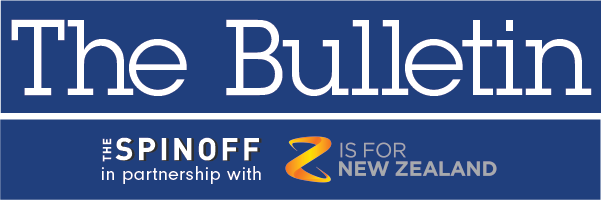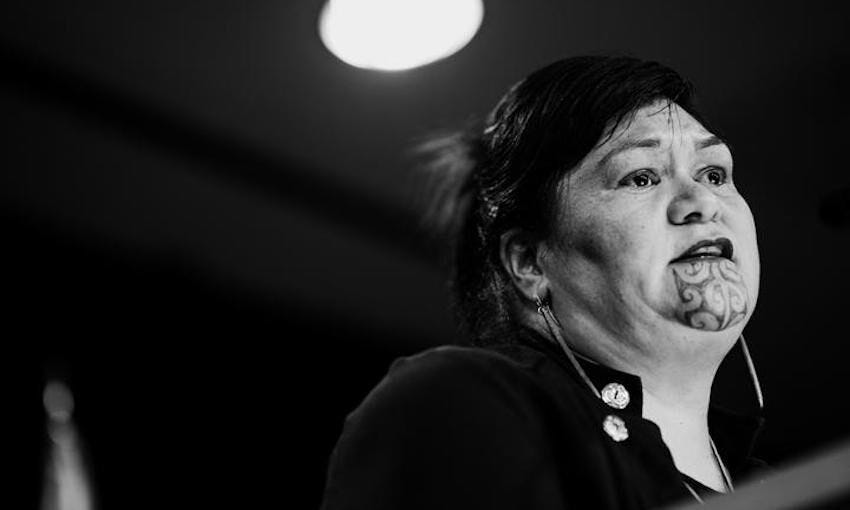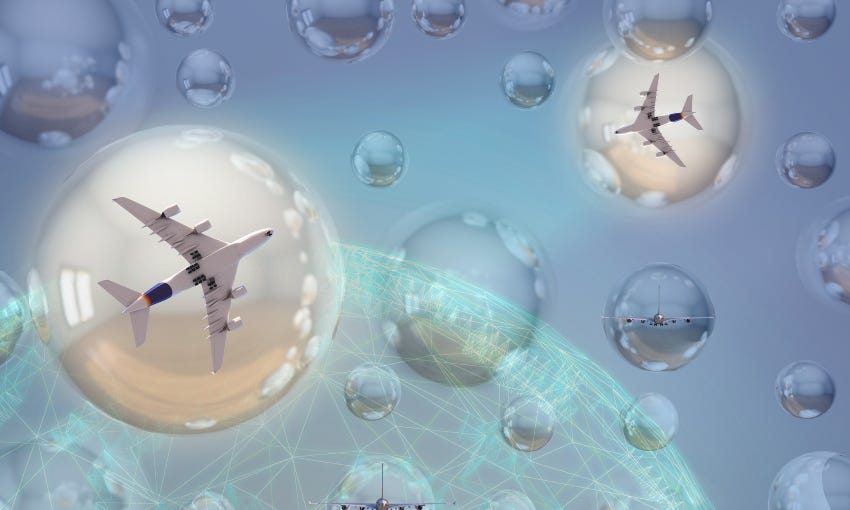Shifts in foreign policy since the elections
Nanaia Mahuta has a tough job at a tough time, but the new US president should make things slightly easier
Good morning and welcome to The Bulletin for Tuesday 24 November, by Alex Braae for The Spinoff. Presented in partnership with Z Energy.
In today’s edition: Shifts in foreign policy since the elections, government increasingly looking to fast-track through RMA, and Andy Foster gets into bizarre tent tangle.
Image: Foreign affairs minister Nanaia Mahuta (Photo: RNZ/Dom Thomas)
All things being equal, which US president would you enjoy a twenty minute conversation with more – Joe Biden or Donald Trump? PM Jacinda Ardern certainly seemed fairly cheerful at her post-cabinet press conference when discussing a call she had yesterday with president-elect Biden. Radio NZ reports they talked about a range of topics, including the Covid-19 response, climate change, and an invitation for Biden to come to New Zealand.
But there was a particular quote that highlighted why the Biden administration is so attractive to the New Zealand government: "We spoke about the importance of organisations like the World Trade Organisation to a country like New Zealand, the ambition we have to resolving those issues, the role we played to date and our eagerness to support work to unblock some of the issues we've experienced." Trump was notorious for shunning international organisations, which New Zealand is heavily reliant on as a small country. As such, official congratulations from Ardern were offered – Axios reports a handful of countries (who largely seek to emulate Trump's unilateralist approach) are still waiting on offering theirs.
Meanwhile, a statement from the Five Eyes intelligence group (which includes NZ and the US) has provoked anger from China. The NZ Herald reports the concerned missive over the undermining of democracy in Hong Kong was met with a rhetorically aggressive response, warning that those who "undermined China's sovereignty" would risk having their eyes poked. Speaking to Newstalk ZB, Ardern said that New Zealand's involvement in the statement was consistent with the government's earlier approach. The government also had the backing of National's (then) foreign affairs spokesperson Simon Bridges, reports Newshub. "We want to trade, we want a strong relationship - but there are these areas where our values are different, and we're not going to be shy in telling these folk," said Bridges.
And finally, on this general topic: New foreign minister Nanaia Mahuta has been profiled by the Financial Times, (paywalled, try googling it if blocked) and it's an excellent piece of work that balances both insight into New Zealand politics, and translating that to the wider world. It also discussed how difficult Mahuta's job will be, with a balancing act of her own to manage on the competition between superpowers.
The government seems set to increasingly fast track major projects around the Resource Management Act, while they get ready to replace it. Politik has a good piece this morning about an example of what that looks like in practice – it's about the development of a new Sleepyhead factory and accompanying village in Waikato, that has resulted in two local government organisations being pitted against each other. Two housing developments in Auckland have also been approved for fast tracking.
Meanwhile, PM Jacinda Ardern has absolutely rejected the suggestion that she'll address unfairness in the tax system by bringing in a capital gains tax, reports Stuff. She was responding to comments from Green co-leader Marama Davidson, who suggested extending existing mechanisms that would sort of beef up a CGT by proxy. Ardern has however given more signals about extending support for first home buyers. Meanwhile, in a wider interview with Newshub, Ardern said she was "concerned about" rapidly rising prices, and that set her government apart from the previous one.
Wellington mayor Andy Foster has got himself into a bizarre tangle over whether he's joining an occupation protest at Shelly Bay. As Stuff reports, he was pictured helping to put up tents ahead of the occupation, but subsequently came out and said he hadn't realised it was a protest at all – he thought it was just a community gathering. Fellow councillors are furious at him, given the recent vote to allow a development on the site to go ahead.
And in Invercargill, the mayor is also under pressure. A governance review has found Sir Tim Shadbolt is no longer able to carry out aspects of his role, reports the ODT. The findings have largely been supported by other councillors, and interested observers. However, Shadbolt said he's being made a scapegoat, and refused to accept those findings.
Deep structural change seems unlikely after the release of the terms of reference for National's post-election review. Stuffhas the general outline of what will be looked at – candidate selection, the performance of caucus and the preparation and operation of the campaign will be on the table. But the wider structure of the party, and the relationship between MPs and members, do not appear to be topics that will be discussed.
Watch this space for a last minute resolution, but at this stage strikes by St John ambulance staff will begin tomorrow, lasting until the weekend. Stuff reports the particular grievance is about an allegedly broken promise – the union says an agreement to pay penalty rates for weekends and night shifts made months ago has not been followed through. It won't be the full workforce on strike, just those signed up to FIRST Union, while the NZ Ambulance Association will be staying on the job. St John, for their part, say they simply don't have the money. Strikes among paramedics are extremely rare, and provisions will be made around public safety.
You'll have to watch this story rather than read it, but the piece from Yvonne Tahana at One News is well worth it. It's about how Ngai Tūhoe have worked with Oranga Tamaraki, to prevent state interventions taking kids into state care. Rather, kids are staying within the iwi and living with caregivers if they can no longer live at home. The programme has been in place for a few years, and resulted in a dramatic reduction in kids being taken by the state.
A story that illustrates how simply putting facts out there doesn't necessarily imply a value judgement on those facts by the news organisation: There's been a lot of social media chatter about this Radio NZ story about the cost of managed isolation – more than $2 million a day, and projected to go over budget by the end of the year. It's not necessarily a gotcha on the part of RNZ to point that out, and in fact the story even puts the money in context, both compared to other government spends, and in the wider context of the taxpayer money that would be spent on more significant outbreaks and lockdowns.
Following yesterday's feature on palm oil, and horrific conditions for those working in plantations: Amal Samaha has followed up on the implications for companies operating in New Zealand, and what local organisations are pushing for in response.
Got some feedback about The Bulletin, or anything in the news?
Drop us a line at thebulletin@thespinoff.co.nz
Right now on The Spinoff: A new episode of Coming Home has been released, a wildly popular podcast about returning NZers. Sonya Wilson writes about a wonderful scheme to work with community organisations to get kids books for Christmas. Siouxsie Wiles writes about new findings on Covid transmission during flights. José Barbosa looks at the extreme enduring popularity of Country Calendar. And Janaye Henry has a gift guide for supporting Māori and Pasifika businesses and creators.
For a feature today, a story about news reporting practices and how sometimes more due diligence is needed. A shocking story has been sweeping through the US, about people dying of Covid refusing to believe it because they think the virus is a hoax. It came from the testimony of a nurse, and is quite possibly true in her experience, but a bit of digging from Wired has shed a more proportional light on it all. Here's an excerpt:
In fact, this episode has some similarities to other weakly sourced accounts of Covid denialism in states that vote Republican. In July we heard reports of rampant “Covid parties.” One version of this story had college students in Tuscaloosa hosting parties with infected guests, and then betting on who else would catch the virus. Another took the form of a second-hand account from a nurse in San Antonio. A 30-year-old patient was said to have admitted just before he died that he’d gotten sick by going to a Covid party. “I thought it was a hoax,” he allegedly told the nurse, “but it’s not.”
As WIRED’s Gilad Edelman reported at the time, none of these accounts held up to further scrutiny—yet each had been picked up from its original source and then amplified by larger publications that added little or no additional reporting. There’s good reason for these stories to be passed along, Edelman wrote. The hospital administrator who first went public with the story of the last-breath Covid-party confession is “trying desperately to get the American public to take the coronavirus seriously. If she hears a perfect cautionary tale, it isn’t necessarily her responsibility to investigate whether it’s too perfect before passing it along. It is, however, precisely the job of reporters.”
Patriotic local Oklahoma City Thunder fans will need to decide whether to start cheering for a new NBA team. Big unit and New Zealander Steven Adams will be heading to the New Orleans Pelicans as part of a multi-team trade, reports the NZ Herald, after being drafted by the Thunder way back in 2013. It brings to a close a fairly handy stretch with the franchise, with Adams finishing 10th on the all-time list of games played for the Thunder – though for much of that time, the team was a championship contender, and never quite delivered when it mattered. At the Pelicans, Adams could end up playing a support role to rising star Zion Williamson.
That's it for The Bulletin. If you want to support the work we do at The Spinoff, please check out our membership programme







